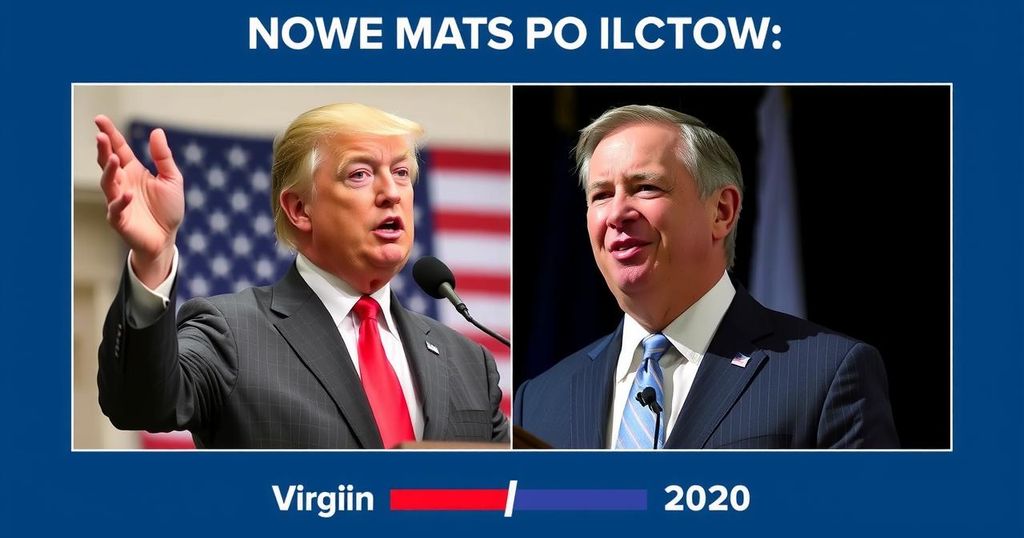World news
7TH CONGRESSIONAL DISTRICT, AFRICA, ALASKA, BRIAN MORAN, CENTRAL INTELLIGENCE AGENCY, CIA, CIVIL RIGHTS, DEMOCRATIC PARTY, ELECTION, LEGISLATION, MARINE CORPS, MCA, MORAN, NEW JERSEY, OBAMA ADMINISTRATION, PRESIDENTIAL ELECTION 2024, SOUTH AFRICA, TOM PERRIELLO, VIRGINIA
Fatima Khan
0 Comments
A Look Ahead at the Virginia Gubernatorial Election and Electoral Reforms
Virginia’s gubernatorial primaries for the 2025 election appear less competitive than those in New Jersey, with Abigail Spanberger running unopposed for Democrats and two Republicans, Winsome Sears and Merle Rutledge, contending for their nomination. The historical context indicates that gubernatorial control in Virginia often shifts based on broader electoral trends. In related news, Alaska confirmed its ranked-choice voting system while several states rejected similar initiatives. Recall elections show that 16% of targeted officials between 2014 and 2023 were removed from office.
Virginia’s gubernatorial elections are set to see polling in 2025, as voters will choose new governors in both Virginia and New Jersey. In contrast to New Jersey, where multiple candidates are competing, Virginia’s gubernatorial primary appears less competitive. Presently, Abigail Spanberger is the sole Democratic candidate, while two Republican candidates, Winsome Sears and Merle Rutledge, are vying for their party’s nomination. Spanberger, prior to her campaign, served as a CIA officer and represented Virginia’s 7th Congressional District since 2019; she champions lowering childcare costs and cites struggles faced by parents in maintaining workforce participation due to high childcare expenses. On the Republican side, Sears, currently serving as Lieutenant Governor, emphasizes the importance of right-to-work laws in maintaining employment independence from union membership.
Historically, the Virginia gubernatorial primaries have seen limited competition, with Spanberger running unopposed and the Republican primary featuring only Sears and Rutledge. Past Democratic primaries have had mixed competition, with highlights including Ralph Northam’s narrow win in 2017 and Terry McAuliffe’s significant victory in 2021. For Republicans, competitive primaries have been seen only occasionally, with Glenn Youngkin’s nomination occurring through a convention process instead.
The upcoming primary elections are significant, as Virginia’s governorship has changed parties frequently, especially with the trend that the party losing the presidential election in the previous year winning control of the governor’s mansion. Both parties are eager to secure a win in this electoral landscape with the Democratic Party seeking to reclaim the position lost in 2022 and the Republican Party attempting to achieve consecutive victories. The primaries are scheduled for June 17, 2025, followed by the general election on November 4, 2025.
In addition, Alaska has retained its ranked-choice voting system following a recent recount confirming its majority support, despite several other states rejecting the implementation of similar systems. Notably, ranked-choice voting proponents had a successful campaign in Alaska, contrasting with defeats in states like Arizona and Idaho. As of December 10, proponents spent significantly more than opponents on these initiatives. Despite setbacks, advocates maintain optimism for the future of ranked-choice voting, illustrating the ongoing debate over electoral reforms in various jurisdictions.
In the realm of recall elections, statistics reveal that 16% of officials who faced recall challenges between 2014 and 2023 were successfully removed from office. With numerous officials targeted, the upcoming annual Recall Analysis by Ballotpedia, to be released later this month, promises a comprehensive examination of this year’s recall undertakings, offering insights into the dynamics of political accountability.
The Virginia gubernatorial election cycle is noteworthy due to its historical trends and the unique circumstances surrounding candidate nominations, characterized by limited opposition in recent years. The dynamics within Democratic and Republican nominations reflect broader political patterns observed in the state, where gubernatorial control often shifts based on party performance in federal elections. Furthermore, the recent developments in Alaska regarding ranked-choice voting highlight the complexities involved in electoral reform efforts and the financing disparities between proponents and opponents. Additionally, recall elections continue to serve as a critical mechanism for political accountability, with Ballotpedia tracking ongoing trends and outcomes.
The upcoming Virginia gubernatorial primaries present an opportunity for both parties to redefine their strategies in a historically competitive landscape, emphasizing the significance of candidate selection. Meanwhile, Alaska’s retention of ranked-choice voting amidst wider rejections in other states underscores the importance of public support and advocacy for electoral reforms. The dynamics of recall elections further illustrate intense political engagement, revealing both challenges and successes in removing officials from office, setting the stage for continued scrutiny of political processes across the United States.
Original Source: news.ballotpedia.org




Post Comment